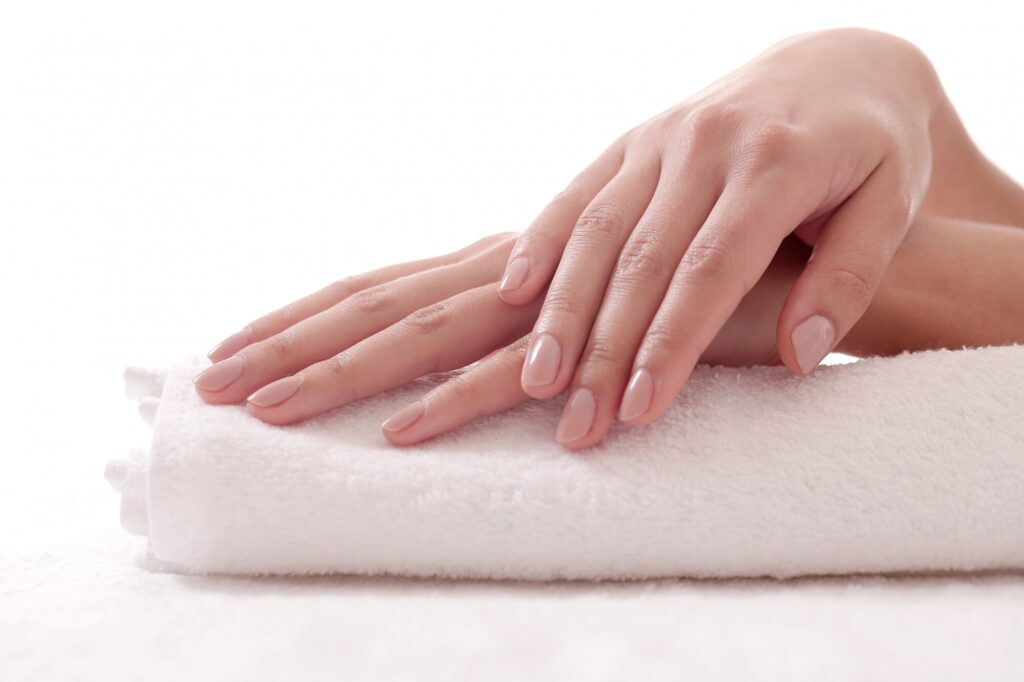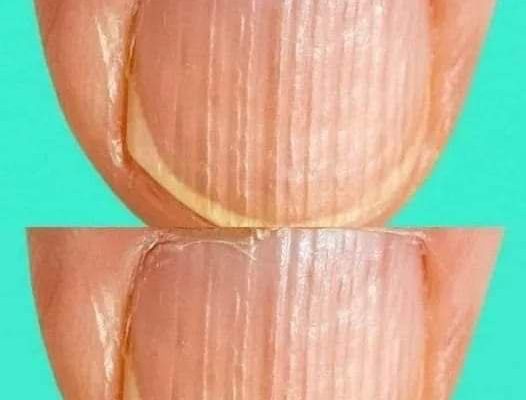Shiny polish cannot conceal the illness that may be concealed within your body, but manicures can cover any bumps or ripples on your nails.
Your nails are a reflection of your general health, and any irregularities may indicate a possible issue with your heart, liver, or lungs.
Our nails frequently serve as a window into our internal health, and when they alter, they may indicate a number of illnesses or just be a reflection of aging.
Stripes on nails can be harmless, but according to the National Library of Medicine (NCBI), ridges on “nails may also provide an insight into more sinister systemic manifestations,” indicating underlying health issues.

This post will discuss the many kinds of nail stripes, their possible meanings, and when you should think about getting medical help.
Types of Nail Stripes
Vertical Stripes
Common longitudinal striations, often known as vertical stripes, usually extend from the cuticle to the tip. Because nail ridges can become more noticeable with age, they are frequently linked to aging.
They might occasionally be a sign of nutritional inadequacies, such as a deficiency in specific vitamins or minerals (iron, magnesium, or vitamin B12).
Age-related vertical ridges are typical and usually benign. However, it might be worthwhile to look for diseases like anemia or thyroid problems if they develop more abruptly or become more noticeable.
Horizontal Stripes
Horizontal stripes or grooves may be a sign of more specialized health issues.
These horizontal indentations, also referred to as Beau’s lines, may be the result of severe illnesses or medical conditions like respiratory disorders, diabetes mellitus, heart attacks, or malnutrition, or they may be the result of physical trauma to the nail.
Because the body may briefly slow down or stop nail growth, the appearance of these ridges is frequently associated with periods of extreme stress or illness.
The NCBI writes that if growth of the grooves is “abrupt, [it] indicates a sudden attack of disease.” And, when present on all 20 nails, it’s “usually the result of systemic disease such as mumps, pneumonia, coronary thrombosis, Kawasaki disease, syphilis, and hypoparathyroidism.”
White Stripes
White, parallel horizontal lines that do not indent the nail surface may be a sign of liver or renal problems. These lines, also known as Muehrcke’s lines, frequently show up on several nails at once and have a tendency to momentarily disappear when the nail is squeezed.
These white streaks, which are frequently observed in people with chronic liver disease or malnutrition, can also be caused by a drop in blood protein levels, especially albumin.
See a doctor if Muehrcke’s lines appear on several nails, as this could indicate renal or liver issues or protein deficits.
‘Poor diet’
Ripples are common for most people and can be resolved with buffing or a change to a healthier way of living.
A well-balanced diet rich in protein, vitamins, and minerals, such as biotin, vitamin E, iron, and zinc, can improve the appearance of nails over time.
Dr. Sara Norris, a naturopathic doctor based in Los Angeles, tells Healthline that “nail health is most often an indicator of poor nutritional intake or poor digestion.”
“Brittle, weak, and peeling nails are the most common concerns I see in my practice, and these symptoms are more often the result of a poor diet than of systemic disease,” she explains.
From innocuous aging symptoms to possible markers of underlying medical disorders, your nails are providing you with some important health information. The majority of the causes are simple to address, but they are a reliable sign of ill health, so listen to what they have to say!

